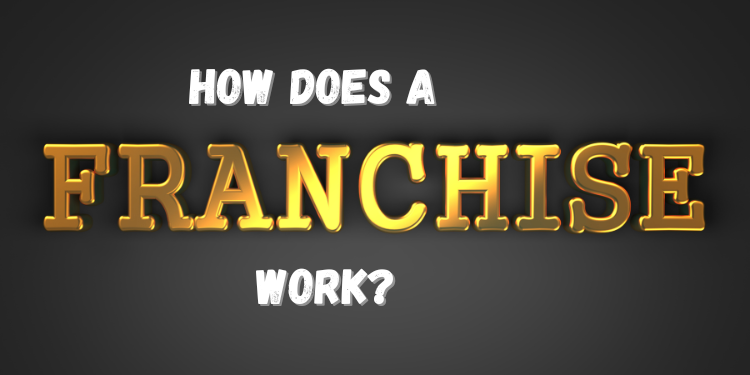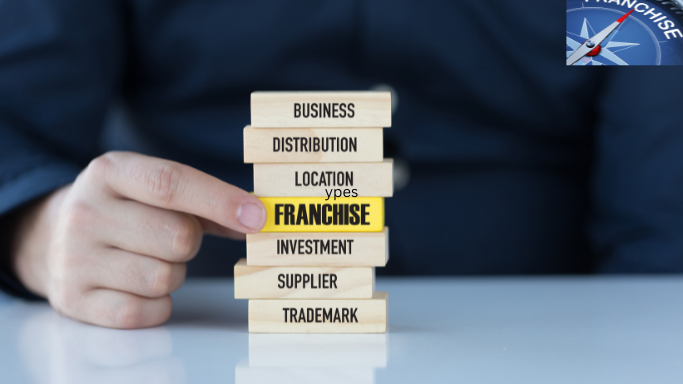
How does a Franchise Work? Definations
admin
- 0
To know How does a Franchise work? In the hospitality industry, franchising and licensing play crucial roles in business growth. Both strategies are effective and important for hotels and investors, allowing them to expand their brand presence. However, the decision to franchise or license depends on key aspects of each approach. In this blog, we will discuss each of them.
Table of Contents
What is Hotel Franchising?
Hotel franchising operates through an agreement between a hotel (the franchisee) and a brand (the franchisor). The franchisor provides the brand name, and the franchisee operates under that brand. Here are the main features of franchising:
How does a franchise work?

Brand Recognition: The franchisee benefits from the franchisor’s established brand, attracting customers who are already familiar with it.
Royalty and Fees: The franchisee pays an initial franchise fee and ongoing royalties based on hotel revenue and profits. These costs are balanced by the advantages of brand association.
Strict Guidelines: The franchisee must follow the franchisor’s guidelines regarding branding, design, customer service, and operations.
Advantages of Hotel Franchising:
Access to an Established Market: Franchisees tap into a network of loyal customers who trust the brand’s consistency and quality.
Reduced Risks: Using an established brand reduces the risks associated with opening a new, independent hotel.
Comprehensive Training: Franchisors provide extensive training, ensuring franchisees maintain brand standards.
Marketing and Advertising Support: Franchisors manage international and national marketing campaigns, enhancing the franchise’s visibility.
Popular Franchise Brands:
Hyatt Hotels
Hilton Hotels and Resorts
InterContinental Hotels Group (IHG)
Marriott International
What is Hotel Licensing?

Licensing, on the other hand, involves a license agreement that allows the hotel owner to use some intellectual property, such as logos, branding, and trademarks, from the license provider. However, licensing offers more operational flexibility than franchising. The hotel owner has more freedom to run the business while benefiting from the licensed brand.
Key Features of Licensing:
Less Operational Control: Licensors provide less operational assistance than franchisors, which helps balance hotel costs and efficiency.
Lower Initial Costs: Licensing is generally less expensive than franchising.
Brand Use: There are fewer restrictions and strict rules in licensing agreements, allowing the licensee to use the brand’s logo and intellectual property more freely.
Advantages of Hotel Licensing:
Operational Freedom: Licensees have more flexibility in operating the hotel while still leveraging the benefits of a well-known brand.
Lower Costs: Licensing agreements are more affordable for hotel owners in terms of initial costs and revenue sharing.
Access to Brand Equity: Licensees can capitalize on brand recognition without the obligations that come with franchising.
Differences Between Franchising and Licensing
Operational Management: Franchising offers structured support from the franchisor, while licensing provides the licensee with more autonomy.
Costs: Franchising typically has higher initial costs and ongoing fees, whereas licensing is more affordable with fewer obligations.
Support: Franchising provides extensive support, including marketing, training, and operational guidance, while licensing only grants permission to use the brand’s intellectual property.
Which Model is Right for Your Hotel?
Deciding between franchising and licensing depends on your business goals, available resources, and desired level of control. If you’re looking for a simpler and more supported way to grow your business, franchising might be the best option. However, licensing could be a good choice if you prefer more control over your business while still benefiting from a brand’s recognition.
Considerations:
Budget: Franchising requires a higher financial investment but comes with extensive operational support. Licensing is more affordable but demands independent management.
Risk Tolerance: Franchising reduces risks by offering a proven business model, while licensing provides freedom but with potential hazards.
Long-term Goals: To build a robust portfolio with top-tier brands, franchising may be the better option.
Both franchising and licensing are effective strategies for expanding your hotel business. Whether you choose franchising or licensing depends on your understanding of these models, your budget, your level of experience, and the long-term benefits for your hotel. By carefully evaluating the merits and risks of each, you can make an informed decision to succeed in the competitive hospitality industry.
Top 10 Hotel Franchises:
For more information, you can visit their websites:
Days Inn by Wyndham
Hampton by Hilton
InterContinental Hotels & Resorts
Marriott Franchise
Motel 6
La Quinta
Super 8
Radisson
Red Lion Hotels
Choice Hotels
What are the criteria for franchising?
Here are more details about how does a franchise work?
To franchise, several steps must be met and completed. Below are some important and shortlisted points with detailed explanations:
For Franchisors:
A Verified Business Model
Before offering a franchise, the business should be successful, with a strong revenue model that can attract potential franchisees.
Attractive Brand Image
A well-known or strong brand enhances the franchise’s value, making it a crucial factor for success.
The Legal Framework
The franchisor’s brand must be legally protected, such as having a registered trademark, and all necessary franchise documentation should be prepared.
Support and Guidance
Proper training events for franchisees and ongoing support for operations, marketing, and management must be in place.
Operations Guidebook
There should be comprehensive documentation of business operations that franchisees must follow to ensure consistency across all locations.
Finance and Franchise Fees
A well-structured financial plan for franchise fees, royalties, and other economic terms must be established. The franchisor should ensure franchisees have a clear path to return on investment.
Franchisee Selection
Criteria should be established to evaluate and select franchisees with the right skills, experience, and financial stability.
For Franchisees:
Financial Stability
Franchisees must meet the financial requirements, including franchise fees, setup costs, and ongoing operational funds.
Business Experience
Having substantial business experience can be advantageous in successfully operating a franchise.
Commitment to Brand Standards
Franchisees must be able to operate in line with the franchisor’s guidelines, ensuring consistency in quality, service, and product offerings.
Location Requirements
Essential criteria such as foot traffic, demographics, and market potential must be met to ensure the franchise’s success.
Understanding the Franchise Agreement
Franchisees should fully understand the legal and operational terms of the agreement before committing.
Training and Development
Franchisees should be willing to adopt the skills and training provided by the franchisor to ensure effective business operations.
Ability to Manage Employees
Franchisees must have the capability to develop management skills and efficiently manage staff.
show lessTypes of Franchising

There are several types of franchising that you should know about before getting into it.
Job-Franchise
A job franchise requires a small amount of investment and is often associated with home-based businesses. It can be run by a single person or fewer than five people. In this case, the franchisee only needs to pay a franchise fee and cover minor costs such as equipment, basic materials, and often a vehicle. Large industries can be franchised in this way, offering services such as:
Kids’ services
Housekeeping services
Event planning
Technicians and accessories
Household mechanics
Travel agents
Pool maintenance
Coffee services
Lawn care and accommodation services
Product Franchise
Also called a distribution franchise, this is a product-driven franchise model. In this type of franchise, the parent company provides goods and some related services. The parent organization distributes products to implement its branded trademark but does not provide the full system to operate the business. This type of franchise is especially common in retail sales in the United States. Examples include:
Vending machines
Bicycles
Computers and essential parts
Appliances
Major equipment
Automobile and repair services
Business Format Franchise

The business format franchise is one of the most popular types of franchises. When people talk about franchising, this is often what they mean. In this type of franchise, almost all aspects of running the business are provided to the franchisee, including marketing, operations, and training. Examples include:
Retail
Restaurants
Fitness centers
Fast food chains
Investment Franchise
An investment franchise requires a larger amount of capital compared to other types of franchising. In this case, the franchisee becomes a major investor, providing the funds and management team to run the business. This type of franchising focuses on generating returns from the investment with personal involvement. Examples include:
Hotels
Large restaurants
Conversion Franchise
Known as a hybrid franchise, a conversion franchise involves an existing business joining a franchise system. The existing company accepts the parent company’s trademarks, marketing and promotional campaigns, training systems, and other procedures. These types of franchises are popular in industries such as:
HVAC services
Florists
Electronics
Plumbing services
Professional services companies
Real estate
Advantages and Disadvantages of Franchising
Merits
There are several benefits to investing in a franchise. One key advantage is that you are working with an established brand and a proven business model. For example, if you take a McDonald’s franchise, you don’t have to worry about which products to sell, how to design the business layout or even employee uniforms—everything is provided by McDonald’s. Additionally, the franchisor offers training and planning for your business, though there’s no guarantee of success.
Demerits
For start-ups, the initial costs can be high, including franchise fees, royalties, and other ongoing costs. For instance, a McDonald’s franchise costs between $1.3 million and $2.3 million to start. Furthermore, franchisees must pay the franchisor ongoing fees, typically a percentage of revenue. This percentage can range between 4.6% and 12.5%, depending on the company or industry.
How Does the Franchisor Make Money?
A franchisor can make money in three main ways:
- The franchisee must buy the rights to use the franchisor’s brand or trademark.
- The franchisor makes money by providing training, tools, equipment, and business ideas.
- The franchisor earns money through ongoing royalties, which are typically a percentage of the franchisee’s revenue.
- This revised version should now be more grammatically correct.
low costs franchises in 2024.
1. OYO Rooms
2. Red Roof Inn
3. America’s Best Value Inn
4. Motel 6
5. super 8 by Wyndham
6. Travelodge by Wyndham
7. Budget Inn
8. Rodeway Inn by Choice Hotels
9. Econo Lodge
My Place Hotels
Most profitable franchises:
1. Marriott International
2. Hilton Hotels and Resorts
3. Hyatt Hotels
4. Hampton by Hilton
5. Holiday Inn Express
6. Courtyard by Marriott
7. Hampton Inn and Suites
8. Residence Inn by Marriott
9. Fairfield by Marriott
10. Best Western Hotels and Resorts
11. Hilton Garden Inn
12. Wyndham Hotels and Resorts
Most expensive hotel franchises
1. Ritz-Carlton
2. Waldorf Astoria
3. Four Seasons Hotels and Resorts
4. St. Regis
5. JW Marriott
6. Park Hyatt
7. Grand Hyatt
8. Edition Hotels
9. InterContinental Hotels and Resorts

